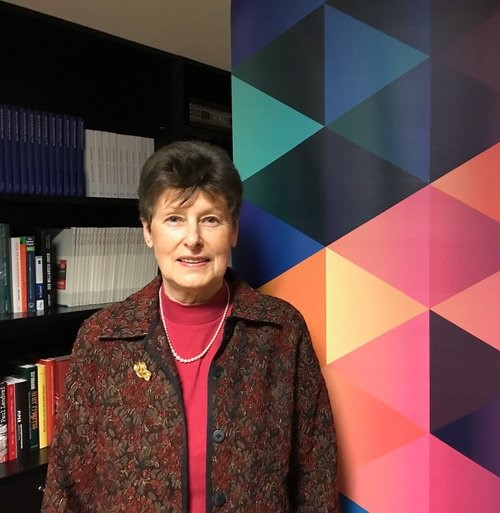by Angela Kane, Vice President of IIP
For those of us having spent many years in diplomacy at the United Nations, Stuart Russell’s account of his involvement in the automated weapons systems (AWS) policy discussion, “Banning Lethal Autonomous Weapons: An Education” (Issues, Spring 2022), was a poignant reminder of the difficulties of achieving results in multilateral deliberations.
As UN High Representative for Disarmament, I met with Christof Heyns shortly after the 2013 publication of his report on lethal autonomous robotics and the protection of life, and subsequently brought it to the attention of representatives of member states. Heyns was a Human Rights Special Rapporteur, and reports such as his are not staple reading material for arms control officials. My interventions stimulated interest. But we needed a “home” for the discussions and found it in one of the Geneva Conventions—generally known as CCW, for simplicity’s sake. CCW is the umbrella convention for five protocols, one of which deals with blinding laser weapons that were outlawed before being fully developed. It was a perfect fit, everyone thought.
Open-ended working groups (in which any member state can participate) convened between 2014 and 2016. Few government delegates were familiar with the issue of AWS. Sharing information and substantive briefings were important to acquaint diplomats with the issues, and Russell participated, explained autonomy, and patiently answered many questions. Another briefer from the British artificial intelligence company Deep Mind also took part in the proceedings, but became disillusioned when he was given only a 30-minute time slot: not worth the travel to Geneva, was his feedback.
Where are we now, nine years after the discussions started? Following the activities of the Open-Ended Working Group, its name (and format) was changed in 2016 to a “Group of Governmental Experts,” a diplomatic construct that allows adoption of reports and documents only by consensus, essentially blocking the will of the majority by giving a veto power to every participating state.
More years spent debating this issue may not yield the desired result; public pressure and advocacy, however, may.
The limited time in AWS meetings was spent debating key definitions, compliance with international humanitarian law, the relevance of ethical principles, the need for human command, and whether nonbinding principles and practices would suffice or were legally binding rules needed. These differences are nowhere near resolution, and states have coalesced around political positions. There are those trying to table a proposal that could find consensus, such as a normative and operational framework. Others propose a political declaration. Over 30 countries have called for a total global ban on AWS.
When a meeting in December 2021 could not agree on a way forward, a group of 23 states delivered a statement highlighting the urgency of an outcome, stating that “in order for the CCW to remain a viable forum to address the challenges posed by LAWS [legal autonomous weapons systems] its deliberations must result in a substantive outcome commensurate with the urgency of the issue.” With a total of 10 days of meetings scheduled for 2022, it is doubtful that the plea for urgency will be heeded.
Russell sets out the complexities of AWS and shares his education in diplomacy. It should be mandatory reading for AI scientists, diplomats, advocacy groups, and the general public. More years spent debating this issue may not yield the desired result; public pressure and advocacy, however, may.
 Angela Kane assumed the position of Vice President of the IIP in 2016, after serving on the IIP International Advisory Board. She holds a number of other functions: Visiting Professor and Member of the Strategic Committee at the Paris School of International Affairs (SciencesPo), Visiting Professor at the Tsinghua University Schwarzman Scholars in Beijing, and Chair of the United Nations University Council. She is also a Senior Fellow at the Vienna Center for Disarmament and Non-Proliferation. Kane has served in many positions during her career at the United Nations. Until mid-2015, she served as the United Nations High Representative for Disarmament Affairs. Between May 2008 and 2012, she was Under-Secretary-General for Management. She served twice in the Department for Political Affairs, as Assistant Secretary-General and previously as Director. She supported several special political missions in Iraq, Nepal and the Middle East, and established the International Commission against Impunity in Guatemala. Her field experience includes Deputy Special Representative of the Secretary-General for the United Nations Mission in Ethiopia and Eritrea (UNMEE), a special assignment to the Democratic Republic of the Congo and multi-year postings in Indonesia and Thailand.
Angela Kane assumed the position of Vice President of the IIP in 2016, after serving on the IIP International Advisory Board. She holds a number of other functions: Visiting Professor and Member of the Strategic Committee at the Paris School of International Affairs (SciencesPo), Visiting Professor at the Tsinghua University Schwarzman Scholars in Beijing, and Chair of the United Nations University Council. She is also a Senior Fellow at the Vienna Center for Disarmament and Non-Proliferation. Kane has served in many positions during her career at the United Nations. Until mid-2015, she served as the United Nations High Representative for Disarmament Affairs. Between May 2008 and 2012, she was Under-Secretary-General for Management. She served twice in the Department for Political Affairs, as Assistant Secretary-General and previously as Director. She supported several special political missions in Iraq, Nepal and the Middle East, and established the International Commission against Impunity in Guatemala. Her field experience includes Deputy Special Representative of the Secretary-General for the United Nations Mission in Ethiopia and Eritrea (UNMEE), a special assignment to the Democratic Republic of the Congo and multi-year postings in Indonesia and Thailand.
Source: IIP, last accessed on 11 Oct. 2022
Note: The views expressed in this article are the author’s own and do not necessarily reflect VIIMES’ official position.



